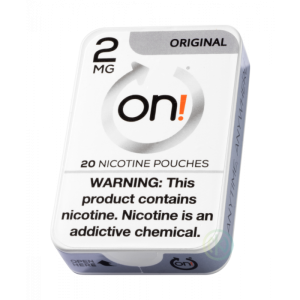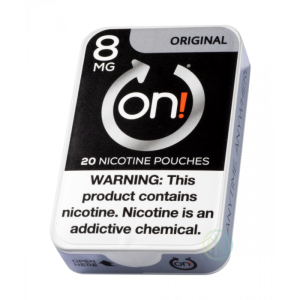Alexandra Howell, DMD, of the VCU School of Dentistry, encourages nicotine pouch users to make dental screenings a priority for identifying health issues.
A nicotine product promoted as an alternative to smoking – and a potential method to quit – is becoming more popular, but experts express there are still worries regarding your health.
Nicotine pouches are dissolvable pouches with a nicotine powder mix that doesn’t have tobacco leaves. One of the popular brands is ZYN, of which 350 million cans were sold in the United States in 2023 – an increase of 62% compared to the previous year.
The quantity of nicotine in oral pouches, like ZYN, is akin to that in smokeless tobacco products, such as snus and snuff, which are positioned in the lip to be absorbed through the gums.
“Nicotine pouches are marketed as a nicotine product that provides a buzz without the harmful effects of tobacco or smoking. However, people using these products should be aware that ‘tobacco-free’ does not mean ‘risk-free,'” said Alexandra Howell, DMD, oral medicine specialist and assistant professor in the Department of Oral Diagnostic Sciences at Virginia Commonwealth University’s School of Dentistry.
As researchers continue to investigate the health impacts of these newer nicotine products, federal health experts observe that smokeless tobacco products are still causing significant health issues, including nicotine addiction and diseases of the mouth.
“While these pouches may seem like a convenient way to consume nicotine, people should be mindful of the possible oral health risks,” Howell added.
Howell spoke with VCU Health News about the impact nicotine pouches have on your teeth, gums, and mouth, as well as other health considerations for people using smokeless tobacco or oral nicotine products.
What substances in smokeless tobacco products and nicotine pouches could be harmful?
When contemplating smokeless tobacco, individuals who dip or chew receive approximately the same quantity of nicotine as regular smokers. Furthermore, they are exposed to at least 28 carcinogenic chemicals. Among these, tobacco-specific nitrosamines (TSNAs) present the most substantial cancer risk. The concentration of TSNAs varies among products, with greater levels associated with heightened cancer risks.
The U.S. Food and Drug Administration has compiled a list of chemicals known as HPHCs – Harmful and Potentially Harmful Constituents – which are present in tobacco products and may cause harm to smokers or nonsmokers. Although these oral nicotine products appear not to contain TSNAs, they have been discovered to have minimal levels of several of these HPHCs.
The cancer risk linked with newer forms of smokeless tobacco or oral nicotine products remains somewhat unclear, mainly due to restricted research in comparison to traditional chewing tobacco and snuff. Nonetheless, these newer products still contain potentially harmful chemicals that might increase cancer risk.
What other health issues are connected with nicotine pouches and smokeless tobacco products?
Nicotine pouches pose several cardiovascular risks due to their nicotine content. The consumption of these products can result in an elevated heart rate and blood pressure, which may enhance the risk of developing cardiovascular conditions such as hypertension, heart disease, and possible heart attacks.
Regarding the potential oral side effects, numerous users experience considerable mouth sores and gum irritation, especially in the location where the pouch is positioned. The persistent exposure to nicotine and other components, such as artificial flavorings and sweeteners, can result in inflammation, redness, ulcers, and swelling. Over time, this can lead to gum recession, revealing the roots of the teeth and augmenting sensitivity and the risk of cavities.
Nicotine has also been demonstrated to diminish saliva production, resulting in dry mouth. Saliva is essential for neutralizing acids produced by bacteria in the mouth, clearing away food particles, and aiding digestion. An insufficiency of saliva can lead to an elevated risk of tooth decay, mouth irritation, halitosis, and other dental issues.
Traditional smokeless tobacco is still recognized to cause gum disease, dental decay, and tooth loss. Furthermore, it can also cause white or gray patches inside the mouth, referred to as leukoplakia, which can lead to cancer.
Are nicotine pouches safer than vaping?
According to the Centers for Disease Control and Prevention, no tobacco products, including vapes or e-cigarettes, are safe. Nicotine, which is found in tobacco products, is addictive. In general, tobacco-free nicotine products, like ZYN pouches or vapes, were originally developed as tools to help people quit smoking, and they are not intended for those who do not already use tobacco or nicotine products.
Some research indicates that the oral pouches’ nicotine levels are higher than medications prescribed by a doctor to assist smokers in quitting, known as nicotine replacement therapy.
The dental and medical communities are advocating for more extensive research to fully comprehend the long-term impacts that these increasingly popular nicotine products have on oral health.
It is essential that individuals who use these products prioritize regular dental examinations to screen for these potential issues and maintain good oral hygiene daily.



